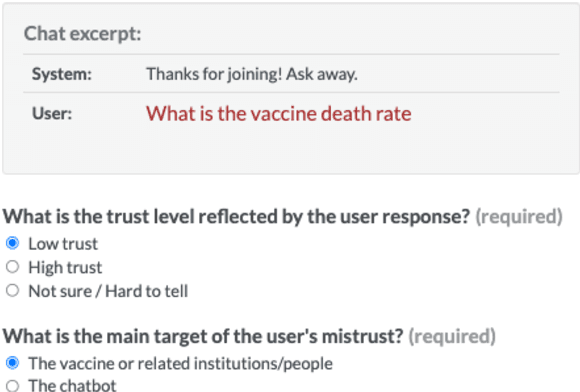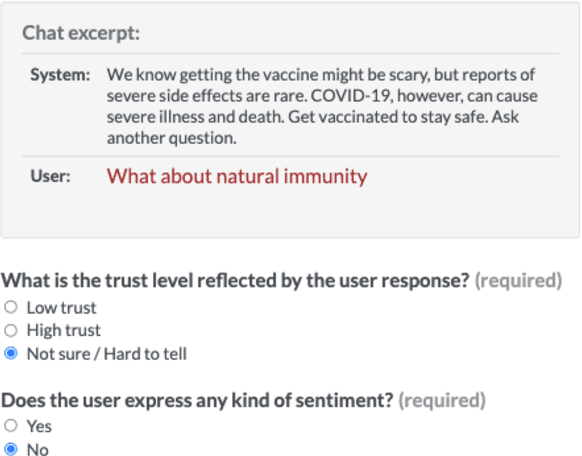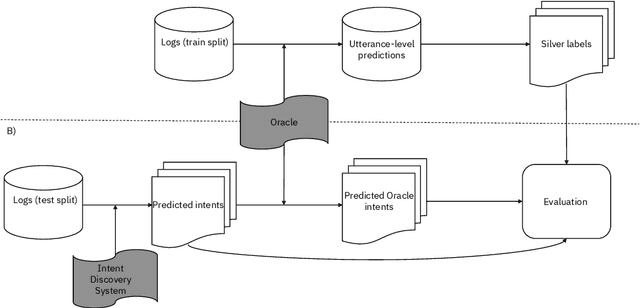Rose Weeks
VIRATrustData: A Trust-Annotated Corpus of Human-Chatbot Conversations About COVID-19 Vaccines
May 24, 2022



Abstract:Public trust in medical information is crucial for successful application of public health policies such as vaccine uptake. This is especially true when the information is offered remotely, by chatbots, which have become increasingly popular in recent years. Here, we explore the challenging task of human-bot turn-level trust classification. We rely on a recently released data of observationally-collected (rather than crowdsourced) dialogs with VIRA chatbot, a COVID-19 Vaccine Information Resource Assistant. These dialogs are centered around questions and concerns about COVID-19 vaccines, where trust is particularly acute. We annotated $3k$ VIRA system-user conversational turns for Low Institutional Trust or Low Agent Trust vs. Neutral or High Trust. We release the labeled dataset, VIRATrustData, the first of its kind to the best of our knowledge. We demonstrate how this task is non-trivial and compare several models that predict the different levels of trust.
Benchmark Data and Evaluation Framework for Intent Discovery Around COVID-19 Vaccine Hesitancy
May 24, 2022



Abstract:The COVID-19 pandemic has made a huge global impact and cost millions of lives. As COVID-19 vaccines were rolled out, they were quickly met with widespread hesitancy. To address the concerns of hesitant people, we launched VIRA, a public dialogue system aimed at addressing questions and concerns surrounding the COVID-19 vaccines. Here, we release VIRADialogs, a dataset of over 8k dialogues conducted by actual users with VIRA, providing a unique real-world conversational dataset. In light of rapid changes in users' intents, due to updates in guidelines or as a response to new information, we highlight the important task of intent discovery in this use-case. We introduce a novel automatic evaluation framework for intent discovery, leveraging the existing intent classifier of a given dialogue system. We use this framework to report baseline intent-discovery results over VIRADialogs, that highlight the difficulty of this task.
 Add to Chrome
Add to Chrome Add to Firefox
Add to Firefox Add to Edge
Add to Edge